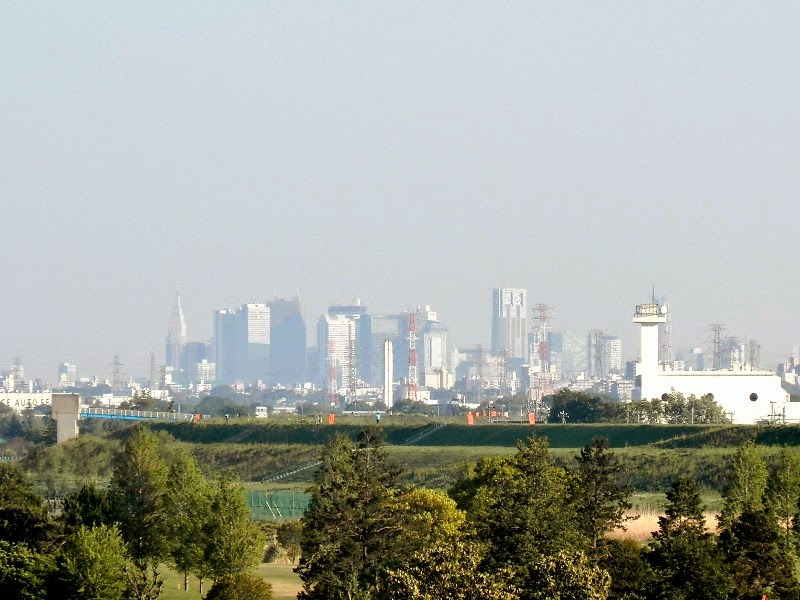Around Tokyo
King and His Palace against Christ Jesus
It is interesting to know that Bethlehem where Christ Jesus was born was 5 km or 3 miles away from Herodium.
Herodium or Herodion is a truncated cone-shaped hill, located 12 kilometres (7.5 mi) south of Jerusalem and 5 kilometres (3.1 mi) southeast of Bethlehem, in the Judean desert (the West Bank). Herod the Great built a fortress, a palace, and a small town in Herodium, between 23 and 15 BCE, and is believed to have been buried there.[2] Herodium is 758 meters (2,487 ft) above sea level,[3] the highest peak in the Judean desert.When Herod the Great died, his son Herod Antipas took over. Herod Antipas ruled the region from 4 B.C. to 39 A.D. But it was in Jerusalem that Herod Antipas saw Christ Jesus in a trial as Christ was sent to him by Pilate.
http://en.wikipedia.org/wiki/Herodium#Construction
But the fate of Herod Antipas was very pitiful in a sense.Luke alone among the Gospels states that a group of Pharisees warned Jesus that Antipas was plotting his death, whereupon Jesus denounced the tetrarch as a "fox" and declared that he, Jesus, would not fall victim to such a plot because "it cannot be that a prophet should perish away from Jerusalem".[30] Luke also credits the tetrarch with a role in Jesus' trial. According to Luke, Pilate, on learning that Jesus was a Galilean and therefore under Herod's jurisdiction, sent him to Antipas, who was also in Jerusalem at the time. Initially, Antipas was pleased to see Jesus, hoping to see him perform a miracle, but when Jesus remained silent in the face of questioning Antipas mocked him and sent him back to Pilate. Luke says that these events improved relations between Pilate and Herod despite their earlier enmity.http://en.wikipedia.org/wiki/Herod_Antipas#John_the_Baptist_and_Jesus
Antipas' fall from power was due to Caligula and to his own nephew Agrippa, brother of Herodias. When Agrippa fell into debt during the reign of Tiberius despite his connections with the imperial family, Herodias persuaded Antipas to provide for him, but the two men quarrelled and Agrippa departed. After Agrippa was heard expressing to his friend Caligula his eagerness for Tiberius to die and leave room for Caligula to succeed him, he was imprisoned. When Caligula finally became emperor in 37 AD, he not only released his friend but granted him rule of Philip's former tetrarchy (slightly extended), with the title of king.[45]The great palace Herodium was also destroyed amid the revolt by Israelites against Romans in 71 CE.
Josephus relates that Herodias, jealous at Agrippa's success, persuaded Antipas to ask Caligula for the title of king for himself. However, Agrippa simultaneously presented the emperor with a list of charges against the tetrarch: allegedly, he had conspired against Tiberius with Sejanus (executed in 31 AD) and was now plotting against Caligula with Artabanus. As evidence, Agrippa noted that Antipas had a stockpile of weaponry sufficient for 70,000 men. Hearing Antipas' admission to this last charge, Caligula decided to credit the allegations of conspiracy. In the summer of 39 AD, Antipas' money and territory were turned over to Agrippa, while he himself was exiled.[46] The place of his exile is given by Josephus' Antiquities as "Lugdunum" in Gaul.[47] (This may mean the city of Lugdunum now known as Lyon,[48] or the less important Lugdunum Convenarum, modern Saint-Bertrand-de-Comminges.[49]) Caligula offered to allow Herodias, as Agrippa's sister, to retain her property. However, she chose instead to join her husband in exile.[50]
Antipas died in exile.[51] The 3rd-century historian Cassius Dio seems to imply that Caligula had him killed, but this is usually treated with skepticism by modern historians.[52]
http://en.wikipedia.org/wiki/Herod_Antipas#John_the_Baptist_and_Jesus
While Christ Jesus was born and lived, King Herod Antipas was mighty and his palace Herodium was also mighty. But they were all gone with early Christians going out of Jerusalem and eventually Palestine while the First Jewish–Roman War (66–73 CE) was being fought.
So, nothing was truly great and none was great in the period of time when Christ Jesus was alive though the king and his palace looked so magnificent.
Compared with great success of Christianity, the glory of the king of Israelites and nominally even of Christ Jesus at the time is just dust today.
Herodium Today
http://pazzapazza2.blogspot.jp/2010/12/herodion.html
Maybe in the future the Vatican or the White House might follow the fate of Herodium in the worst case.
*** *** *** ***
Luk 6:27 But I say unto you which hear, Love your enemies, do good to them which hate you,


